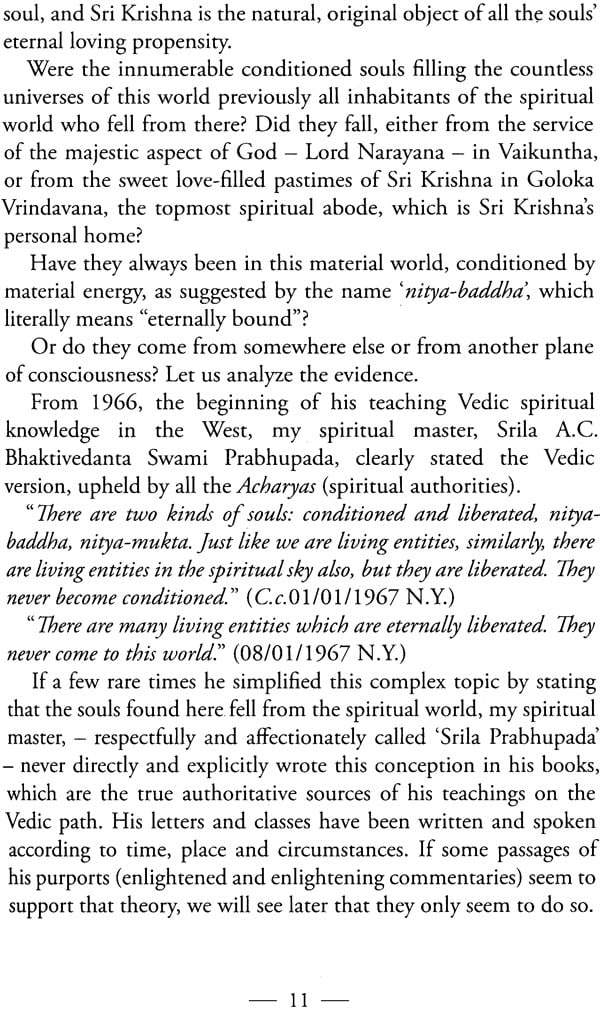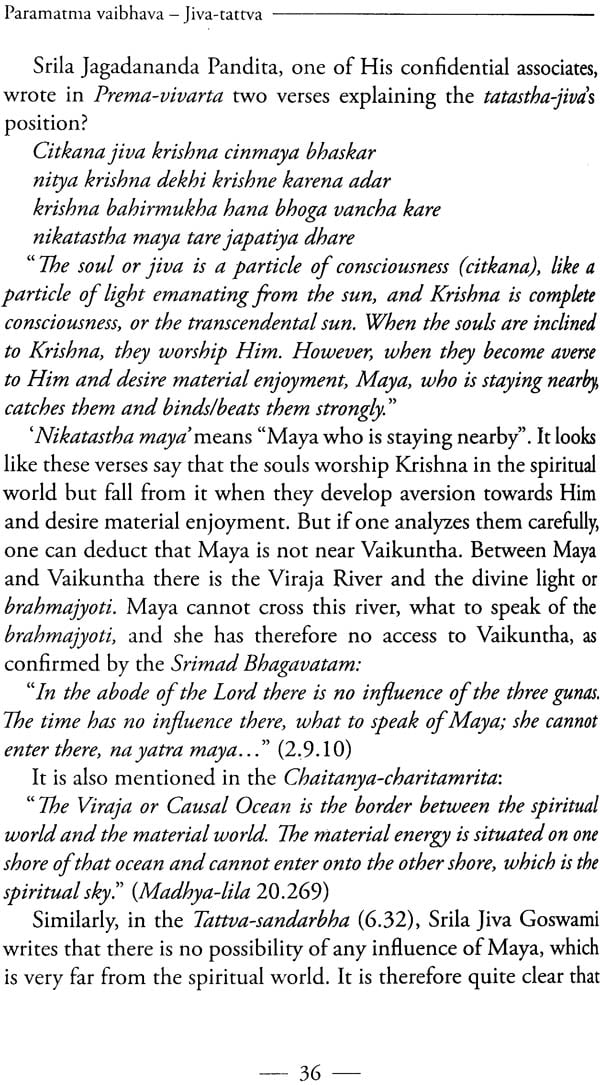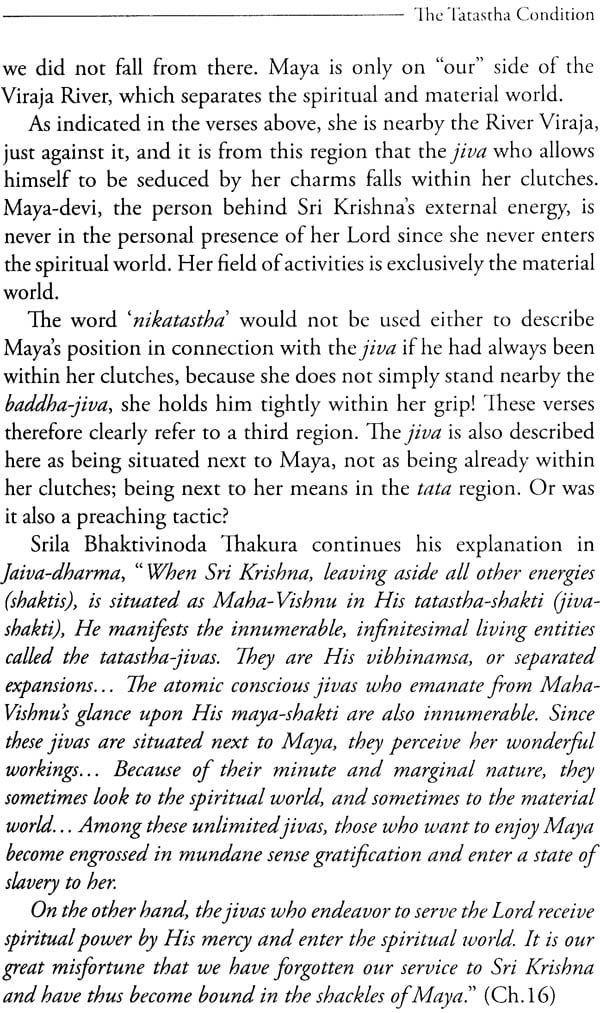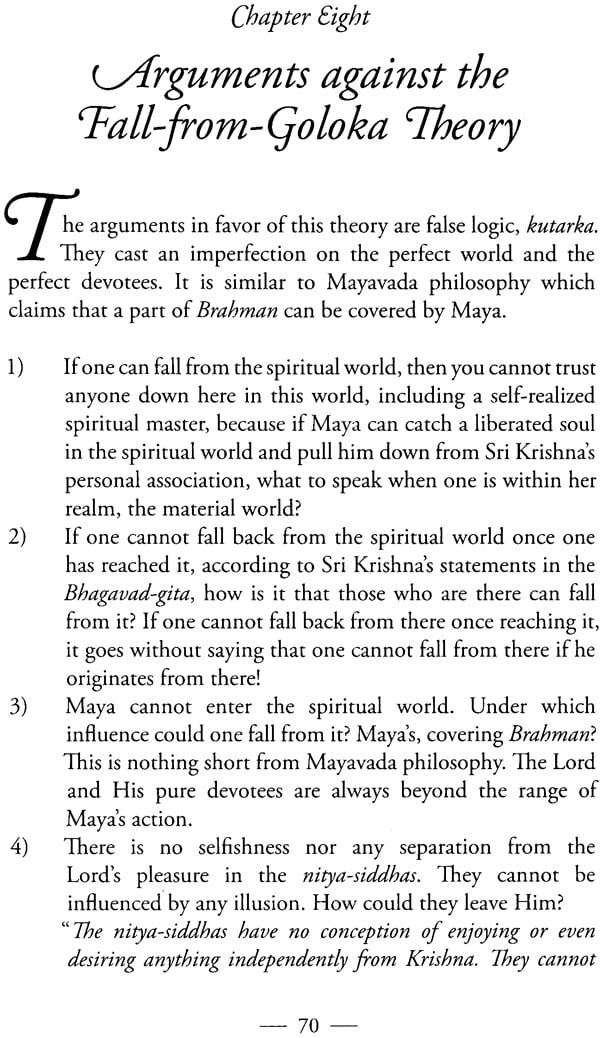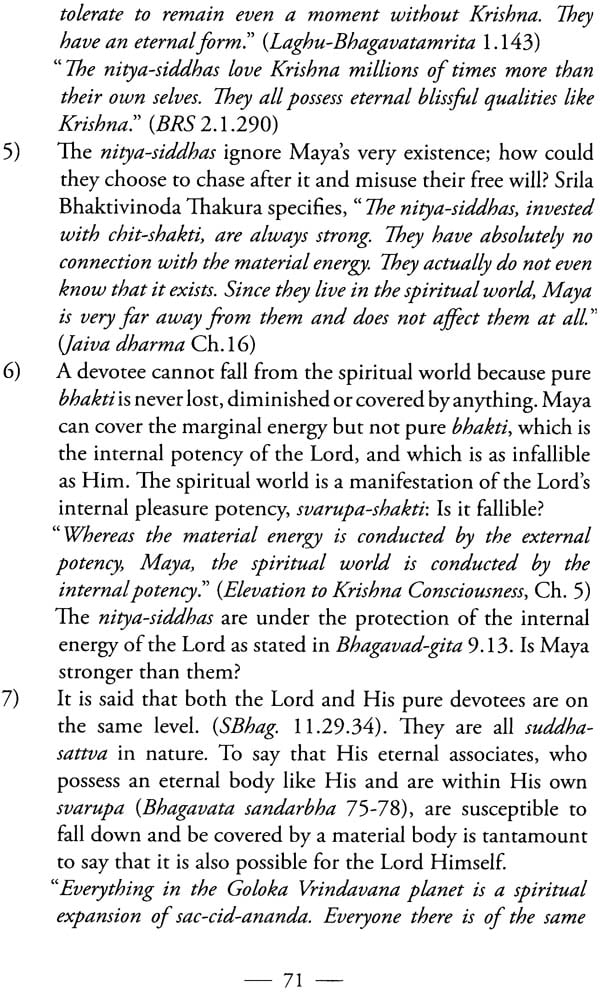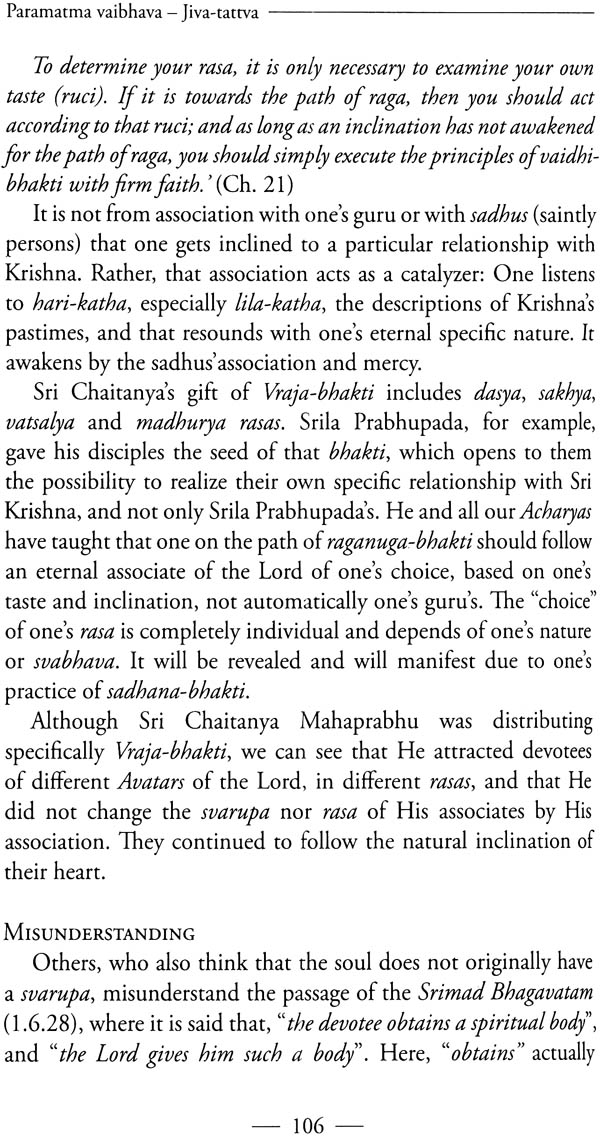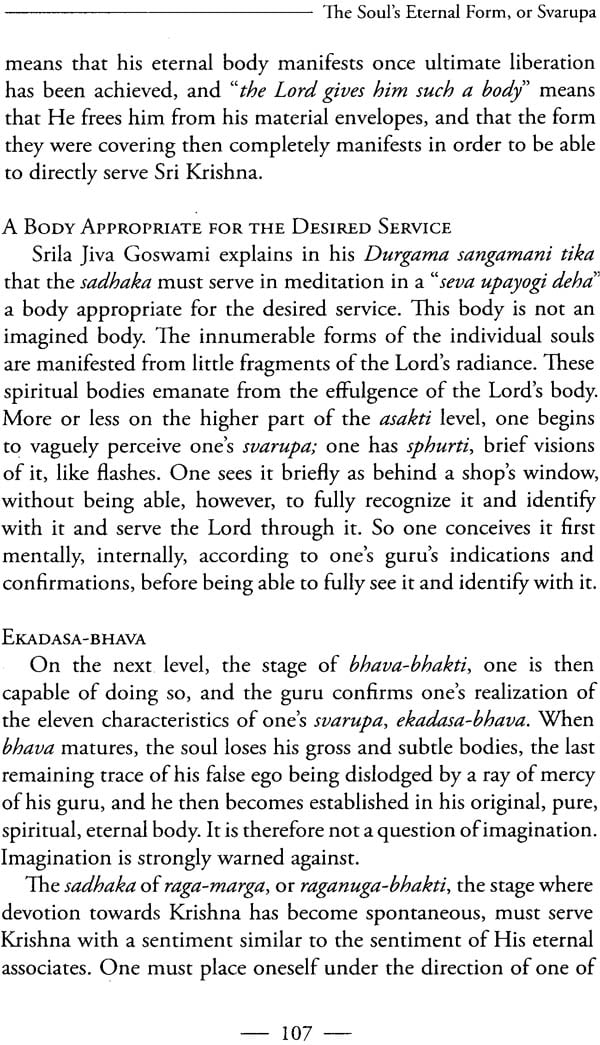
Paramatma Vaibhava - Jiva Tattva
Book Specification
| Item Code: | NAN528 |
| Publisher: | Bhaktivedanta Suddhadvaiti Swami |
| Language: | English |
| Edition: | 2017 |
| Pages: | 108 |
| Cover: | Paperback |
| Other Details | 8.5 inch x 5.5 inch |
| Weight | 150 gm |
Book Description
Proper knowledge of siddhanta is essential for spiritual progress. what is the origin of the conditioned souls? Have they fallen from the spiritual world? have they always been in the material world? Or do they come from another place or condition? Srila Jiva Goswami explains in the Paramatma-sandarbha (37.9) as well as in the Bhakti-sandarbha (1.1) that the very nature of the tatastha-jivas is paramatma-vaibhava, a manifestation of the energy of Maha-Vishnu, and not Krishna-vaibhava, a manifestation of the energy of Sri Krishna Himself....
What is the nature of the soul's form or svarupa? Is it fixed and eternal or is it chosen? Can it change? Is it acquired according to one's association? This book answers this type of questions according to the teachings of the Gaudiya Vaishnava Acharyas, beginning with Srila A.C. Bhaktivedanta Swami Prabhupada.
Introduction
Who are we and where do we come from? these questions pertaining our real identity and our origin are universal. The writings of the ancient Vedic civilization extensively deal with these realization of the self-what is called "self-realization"- as the main objective of human life, and provides to that end a very vast corpus of knowledge, a complete spiritual encyclopedia.
This vast Vedic literature, and particularly the Bhagavad-gita, which contains its essence, teaches that we are not our body-and-mind apparatus, but are eternal, individual souls. They reveal that we are parts and parcels of God-called Sri Krishna, the All-Attractive One-and have with Him an eternal relationship of loving service as our constitutional position and function. this is called sanatana-dharma, the eternal religion of the soul, the inherent status of all souls as servant parts and parcels of Godhead, Vaishnavism, the practice of that "religion of the soul", has never been historically established since it eternally exists.
Along with siddhanta, or philosophical conclusions taught by the Vedic authorities, apa-siddhanta, or misinterpretations of these axiomatic truths, tend to manifest. for instance, in the 8th century AD, an Indian monk, Shankaracharya, introduced the monistic conception according to which the individual soul or atman or jiva is equal to Brahman, the Absolute. in other words, he taught that there are no individual souls nor personal God, that both are products of illusion and that the only reality is Brahman, or " cosmic consciousness". his philosophy has deeply influenced modern Hinduism and it permeates the New Age literature since most Indian gurus who came to the West were monists who taught a form or another of it. it is so widespread that countless people, including most scholars, erroneously think that this monistic interpretation is the traditional wisdom of Indian and its sacred literature.
While presenting the vedic philosophical reaching on the topic of the soul's origins, I shell also address different common misconceptions, specifically the one according to which the souls found in this world fell from the spiritual world due to envy towards God.
Contents
| Introduction | 8 | |
| Chapter One | The Origin of the Conditioned Souls | 10 |
| Chapter Two | Thesis and Antithesis | 22 |
| ChapterThree | Synthesis: Our True Origin | 33 |
| Chapter Four | The Tatastha Condition | 35 |
| Chapter Five | Prema, Pure Love of God, Never Diminishes | 52 |
| Chapter Six | Questions and Answers | 58 |
| Chapter Seven | Apparent Contradictions Resolved | 64 |
| Chapter Eight | Arguments against the Fall-from-Goloka Theory | 70 |
| Chapter Nine | Anadi-Karma in Causeless Anadi-Samsara? | 77 |
| Chapter Ten | The Soul's Eternal Form, or Svarupa | 94 |

